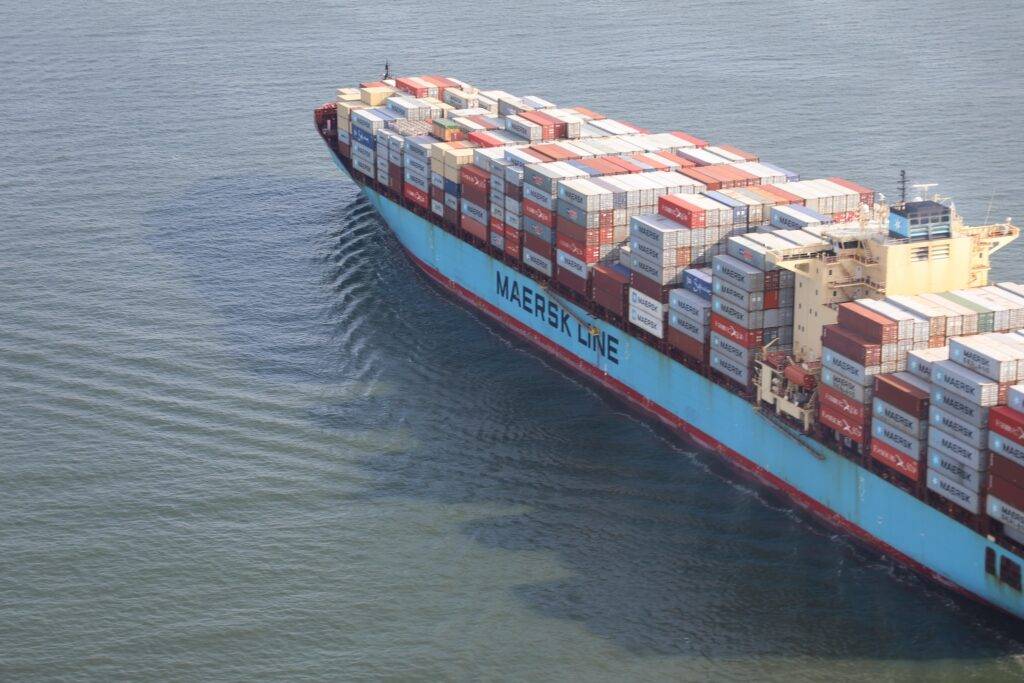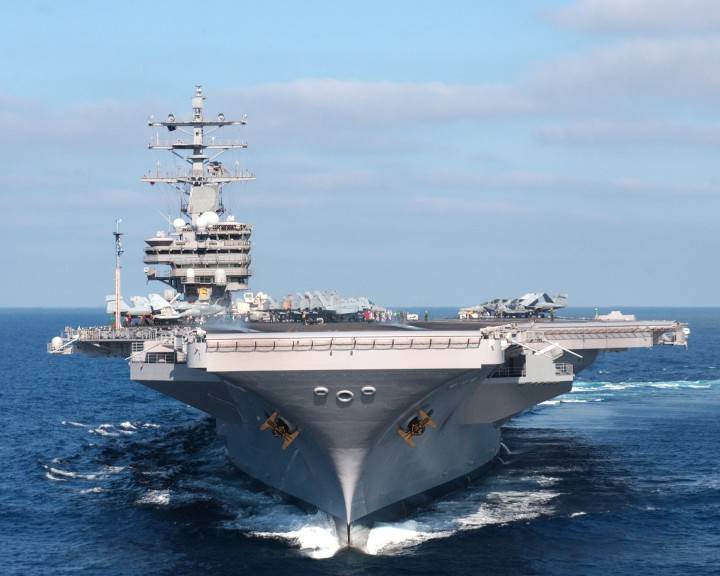Meeting at one of biggest oil producer countries in the world, UEA, at least 80 countries are demanding a UN Climate Change Conference COP28 deal that calls for an eventual end to fossil fuel use. In maritime transport, this revolution is already on its way as more and shipping giants and navies turn to various renewable fuel options.
For more that century, oil has been the most important fuel for navies and cargo shipping. This maritime dominance of oil has often been considered as Winston Churchill achievement. As he went to Whitehall in 1911, coal was still the primary source of power for naval vessels. However, the Royal Navy had already adopted oil for submarines and destroyers. In most ships it was sprayed on coal to increase its combustion. But coal remained the principal fuel, especially for larger vessels like battleships.
Why Coal Was Replaced By Oil
Coal was then widely available all around the World, also in Britain, in Wales. Britain had a global network of coaling stations. But coal had its downsides. It laborious to move coal from shore to ship, and aboard ship. Refuelling at sea was virtually impossible. Comparatively, oil had numerous upsides, like double the thermal content of coal. Thus boilers could be smaller and ships could travel twice as far. Oil enabled greater speed – to outmaneuver the German fleet at the speed of 25 knots. With less smoke than coal, fleets powered by oil would not reveal their presence as quickly. Storing oil in tanks was also easier than storing coal. Thus, oil became the predominant fuel for the British Navy – and as oil was found on the Persian Gulf oil fields, the Royal Dutch Shell Group and Anglo-Persian Oil Company took care of Britain resource worries. The rest of the maritime world followed the Royal Navy’s example.

Turning To Renewables
Now, a century later, scientists are urging ambitious action to avert the worst impacts of climate change. Global maritime transport is responsible for approximately three percent of human-caused greenhouse gas emissions and a significant portion of various sulfur and nitrogen oxide – plus particulate matter emissions. That is why from the beginning of 2025, a new EU regulation, FuelEU Maritime, is entering into force. This regulation aims to support the decarbonization of the shipping industry. In 2023 only, approximately150 cargo ships with the capability to use renewable energy have been ordered from shipyards and engine providers, such as Wärtsilä. The most popular renewables for ships are e-methanol and e-ammonia, produced with clean energy, like wind or solar power.
The Danes Take The Lead in Commercial Shipping
Leading the change in cargo shipping is Danish A.P. Moller – Maersk, which has ordered at least 25 methanol-fueled vessels for delivery in the near future. This move is in line with the company’s goal to carry at least 25 percent of its ocean cargo using green fuels by 2030. Maersk’s inaugural methanol-enabled container vessel has already been deployed. In September 2023, the European Commission President Ursula von der Leyen christened this pioneering ship as La ura Maersk. Other shipping giants such as France’s CMA CGM, Mediterranean Shipping Company (MSC) and Chinese COSCO Shipping Holdings are ordering large renewable methanol-powered cargo ships, too.
The Navy As A Pioneer
Though commercial shipping industry has been active recently in the renewables transition, it is the US Navy which have been the pioneer. Just as a century ago, the world biggest navy, now the he US Navy, has already been has announced in 2022, that it will transition to zero-emission vehicles by 2035 and cut its emissions by 65 percent over the next three decades. The US Navy will also reduce emissions from buildings by 50 percent by 2032 and divert at least half of its waste from landfills by using other methods like composting food. Its Great Green Fleet initiative was launched already in 2016, which had then ambitious plans to use alternative fuels to power ships and other vehicles.
Renewables Have Other Benefits
It is inevitable, that different types of non-fossil, mainly renewable fuels will soon increase in maritime transport. But it just greenwashing or are there, say, strategic benefits?
Biome-thane, ammonia and methanol, which replace oil, can be self-sufficiently produced even in oil-free countries, which brings security of supply to freight traffic. Norway has big oil reserves, but e.g. Sweden and Finland have none. That may be one of the reasons, why these two countries, with ever increasing wind power capacity, are also turning into local production.
The Finnish or Swedish navies are quite modest players, but both of these countries may be strategically interesting players in the future clean energy market. Not only in maritime fuel, but also in clean gas production.
Germany has already proclaimed, that it wants to buy unlimited hydrogen from Finland, when that production starts. The Finnish state gas company wants hydrogen pipelines to Germany and says it will bring investments to Finland as well. But the ministry plans to keep the hydrogen in Finland – at least initially.
Fossil fuels play a significant role in the future energy strategies. But together with global climate crises, the Russian attack to Ukraine may have and the subsequent European energy crises may have given a big extra boost to the next fuel revolution, after which the OPEC countries and Russia no longer hold that many aces up their sleeves. China has similar interests. It was been pushing various renewable energy plans vigorously, including turning energy wood into biodiesel. That turned out to be too expensive. But with the modern solar and wind power, turned into renewable fuels with latest, advanced technology, we may finally say goodbye to our fossil dependency, in peace and war.
Read more:
US Naval Institute: How the Royal Navy Met The Challenge
ResearchGate: Naval innovation: From coal to oil fears of war caused Winston Churchill to make a huge decision
Center for International Maritime Security CIMSEC: COAL TO OIL AND THE GREAT GREEN FLEET 7.5.2012 (https://cimsec.org/coal-to-oil-and-the-great-green-fleet/)
European Maritime Safety Agency: Fuel EU Maritime Regulation
CBS News: U.S. Navy adapting to climate change, transitioning to cleaner energy sources
The Maritime Executive: U.S. Navy Wants 100% Green Electricity, 100% Electric Ground Vehicles
Harvard Business Review: Managing Climate Change: Lessons from the U.S. Navy



